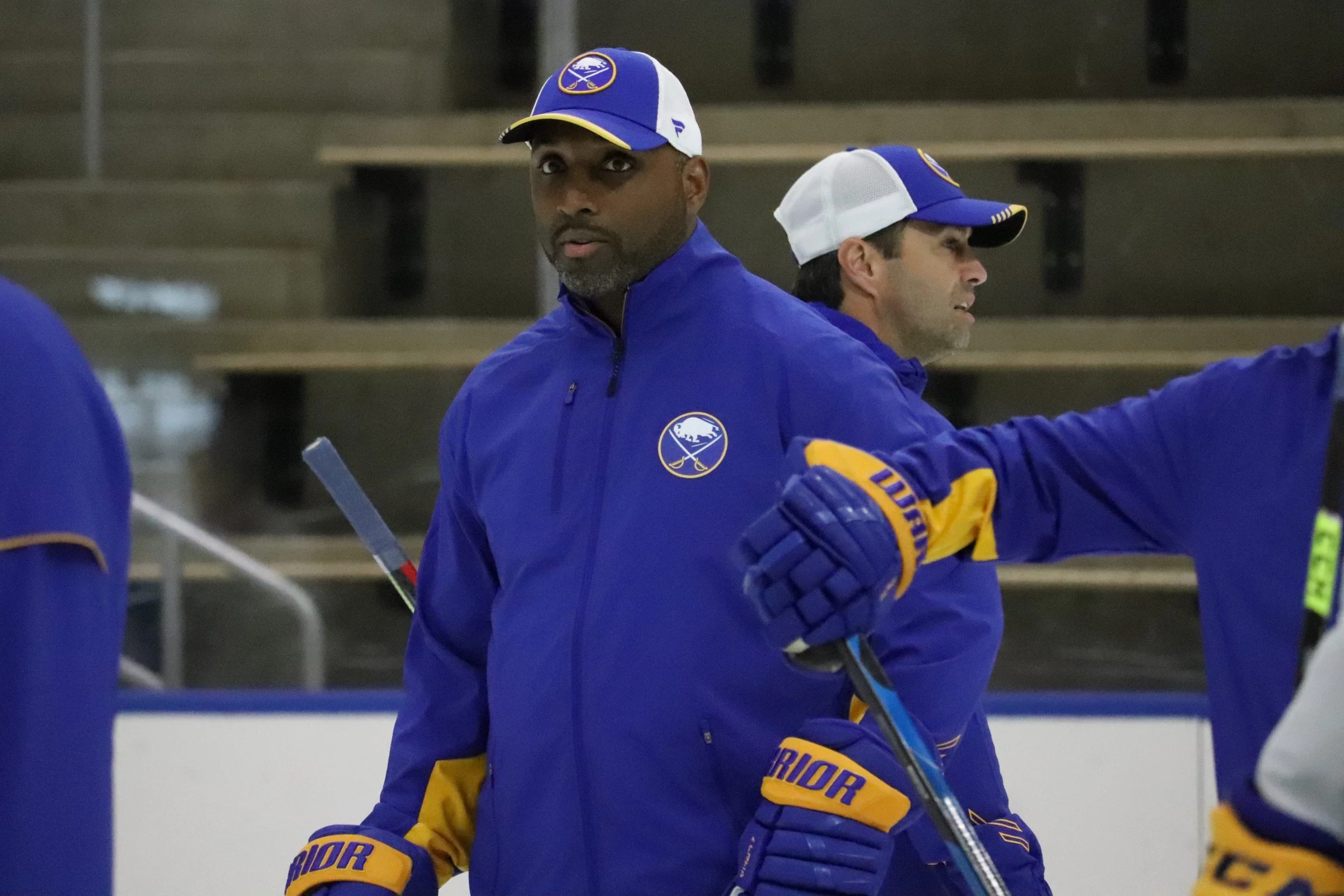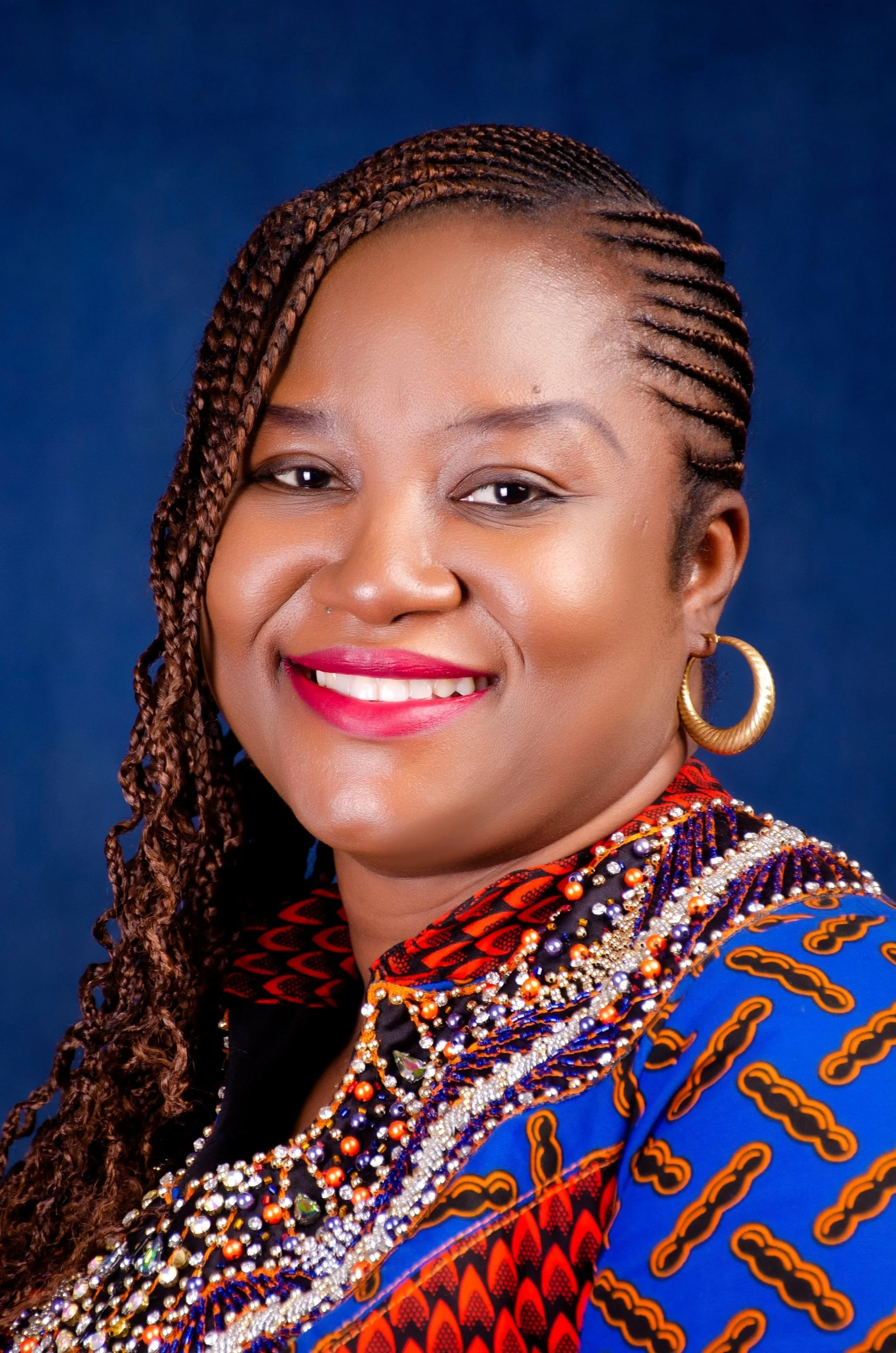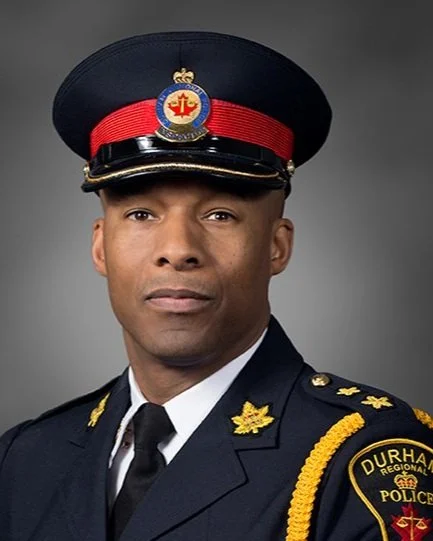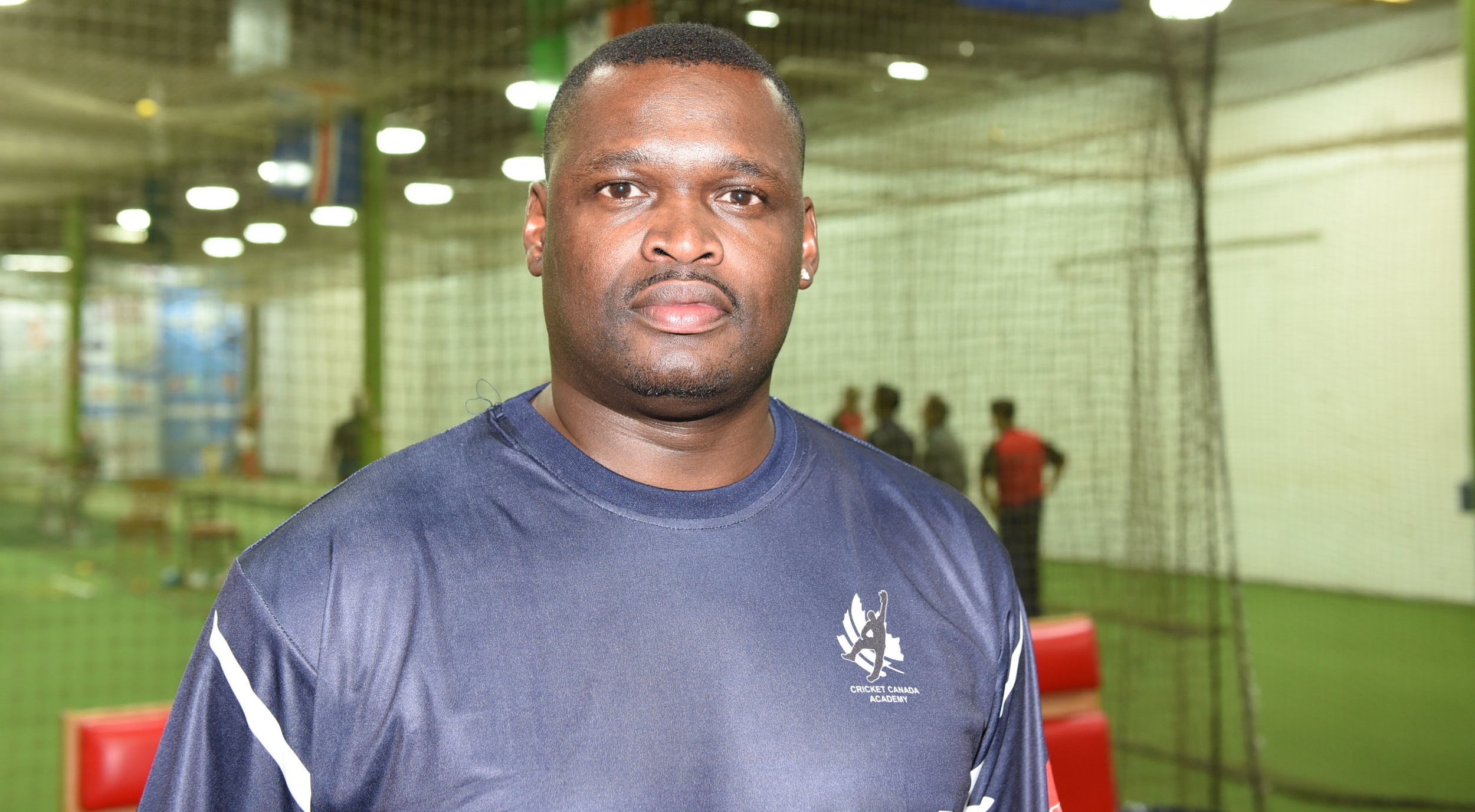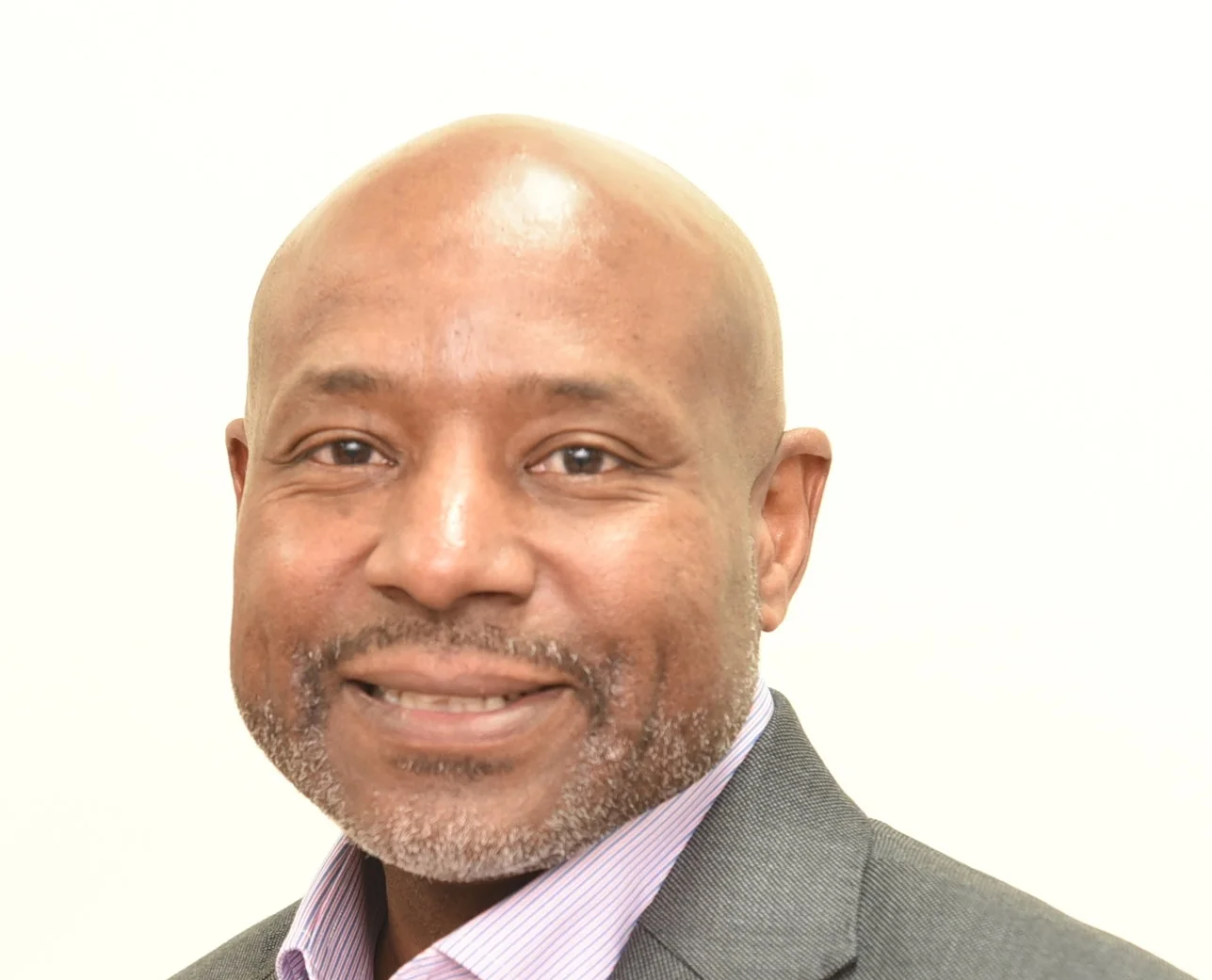Jason Payne is the only Black head coach in professional hockey
October 27, 2021
In Owen Sound for his first Ontario Hockey League (OHL) camp in 1992, Jason Payne and close friend Kevin Weekes – who was drafted by the Owen Sound Platers that year -- were on their way to the arena when they observed a gentleman sitting on his porch.
‘Good afternoon sir’, we said as we walked by and he just looked at us without saying a word,” recounted Payne. “It was as if we didn’t exist. I remember that incident like if it happened yesterday and we talk about it all the time.”
Weekes went on to enjoy a successful 13-year career in the National Hockey League (NHL) as a goaltender and was the sport’s first Black analyst, providing colour commentary on the NHL Network and Hockey Night in Canada for 12 years.
Last June, he joined ESPN as a studio and game analyst.
Payne, on the other hand, became the only Black head coach in professional hockey two months ago when he was chosen to lead the Cincinnati Cyclones of the East Coast Hockey League (ECHL).
He replaced Matt Thomas who was hired by the Providence Bruins of the American Hockey League (AHL).
Starting his coaching career in the OHL in 2011, Payne spent the last decade in various roles across multiple leagues as a scout, general manager and skills, skating, assistant and head coach.
He joined the Cyclones as their Assistant Coach prior to the start of the 2018-19 season.
Kristin Ropp, the club’s Vice-President and General Manager, said Payne is ready for the new role as coach and Director of Hockey Operations. He will also continue his work with the Cyclones Foundation to help grow the game at the youth level in the Greater Cincinnati Area.
“His commitment to maintaining our winning culture while growing the game of hockey in the Greater Cincinnati Area are ingrained in him due to his tenure with the organization,” noted Ropp who is the only female General Manager in professional hockey in North America. “There is a great sense of peace of mind turning the team over to him. I am excited to see Jason’s leadership development even more and witness his success both on and off the ice.”
Jason Payne is ready for the new challenge of coaching the Cyclones (Photo contributed)
Payne, a member of the NHL Coaches Association BIPOC (Black, Indigenous & People of Colour) Coaches program, is ready for the new challenge.
“I had to learn the league and the ways of handling the pro hockey life,” he said. “For the last couple of years, it was about getting adapted to the league and the way things work, like the deadlines. Coaching is the easiest part. The hard part is the managing. You have to deal with players’ accommodation, travel and immigration matters. In this league, the coach wears a lot of different hats. The higher you get, there are more people for those roles, so you have fewer responsibilities. But at this level, you have to know all the jobs and roles and how everything works from the inside out.”
Coaches have their own style and approach.
What can the Cyclones players expect from Payne as he embarks on this new journey?
“I am a people person,” he is quick to point out. “We are in the people business and we have to get the person right before we get the player right. It’s about relating to the players and understanding where they are in their development. We have to show them that we care and let them understand that we want the best for them. It’s good to have great players and it’s good to have good players. But we want to have great people first and the rest will fall into place.”
Born and raised in Toronto, Payne was introduced to the sport at age four by his mother, Josephine Payne, who migrated from St. Lucia.
The family resided in the area of Bathurst St. and St. Clair Ave. W. near St. Michael’s College School which ice hockey program has produced several past and present NHL players.
“She took me to St. Mike’s early one morning and I had no idea what was going on,” said Payne whose Cyclones is an affiliate of the Buffalo Sabres. “She put some equipment on me, put me out on the ice and away I went. My mom, who was a single mother, worked two jobs and we often travelled on the TTC (Toronto Transit Commission) to go to games and tryouts. I was a goalie until age 13 and the worst part about that is that I was travelling around with these big goalie pads. Hockey was the first main sport I was put into and it stuck with me even though my mom put me in baseball, football and soccer. Playing all of those sports was great because it kept me busy and active. I can’t thank her enough for all she did.”
Acting on his father’s (Ted Cato) advice, Payne made the switch from goalie.
After trying out for a few teams in his first year outside goal, he attracted the attention of the Toronto Devils coach while playing pick-up hockey in a Scarborough arena.
“He asked if I wanted to practice with the team and I said, ‘okay, sure’,” Payne pointed out. “At the practice, he looked at me and asked if I wanted to play hockey and I said ‘yes’. He asked if I wanted to play for his team and I said, ‘yes’. It was Single A hockey for me back then and that was the start.”
While playing for Toronto Devils, he practiced with the Double A Hillcrest Summits that was close to his home.
“The Summits coach believed in me and give me the opportunity that led to me making the team the following year,” the 46-year-old said. “The hunger, drive and passion continued to build from there.”
Jason Payne has paid his dues (Photo contributed)
Surrounded by people who wanted to make it to the top in the sport was also a big inspiration for Payne.
One of them is Weekes who was drafted by the Florida Panthers in the second round of the 1993 NHL draft.
“Seeing him come through the minor ranks, getting all of the accolades and just observing his passion and focus really impressed me,” said Payne. “If you don’t’ see it, you don’t know it any better. Kevin was able to get as far as he did in his career because of the discipline he maintained. The night before his OHL draft, we were down in his basement designing goalie masks for what team he might possibly get drafted by.
“When he first started out as an analyst, I stayed up late at night to watch him on the air calling the West Coast games for Hockey Night in Canada. I would give him tips on what I am hearing and how he’s sounding. That’s what you do for your friends. He does the same for me. We talk daily, keeping each other up and our mindsets in the right place while pushing towards our goals. To have that type of friendship and sounding board is great.”
To say that Payne has paid his dues is putting it mildly.
Undrafted in the OHL and professional hockey, he spent 16 seasons with 25 teams in 10 leagues fighting for everything that came his way.
“Everybody has to find a job, especially the way hockey was back then,” said Payne who accumulated 1,825 penalty minutes in 596 regular season and 22 playoff games. “It’s a battle, it’s finding that niche and what makes you unique and desirable to the people that are doing the hiring. I just had to find a way. Nobody was telling me what I needed to do to get to the next level. I had to figure out what works for me. The way the game was played back then, that was one of my strengths and I took pride in it.”
To cement his role as an enforcer on the ice, he took boxing lessons.
“I studied fights and watched hockey fights on television,” noted Payne who opened a hockey school, Precision Skating, after his playing career ended. “I studied my opponent and worked on different grabbing techniques and other different areas. If that was something that was going to help me make it, I had to make sure I was going to be the best I could be at it and I was going to study and learn.”
Payne is just the third Black Head Coach in the ECHL since its launch in 1988 and the sixth BIPOC Head Coach in professional hockey after Dirk Graham, John Paris, Shawn Wheeler, Graeme Townsend and Leo Thomas.



